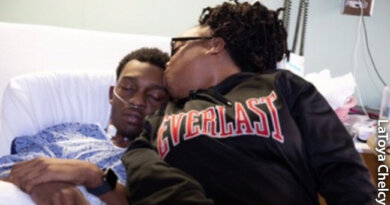Tips and Tricks to Manage Your Day-to-Day
When you’re living with narcolepsy, you can take charge of daytime sleepiness by getting treatment from a doctor who specializes in sleep medicine. It also helps to practice healthy habits, like getting on a sleep schedule, planning short naps, and eating a balanced diet.
There’s more you can do to stay fresh and alert, too. Here are some simple tips from sleep doctors who’ve treated people with narcolepsy.
Plan Your Week in Advance
Do you tend to feel sleepier during a certain time of day, like the midafternoon? If so, try to schedule important activities away from it, says Ronald Chervin, MD, director of the Michigan Medicine Sleep Disorders Centers.
If you have to do something that requires a high level of thought or performance during a sleepier part of the day, take a 15- to 20-minute power nap first.
“That will help power you through,” Chervin says. “And for a good number of people, it’s about the same as taking a short-acting stimulant” medication.
Also, try to avoid overbooking yourself to make sure that your activities don’t eat into your sleep at night, says Abhinav Singh, MD, medical director of the Indiana Sleep Center.
“Give yourself adequate time to recover from a late-night engagement,” he says. Don’t book important events or tasks for the next morning if possible.
Drive Safely
Work with your doctor to make sure you’re being safe when you get behind the wheel.
“If you have a history of sleepiness while driving, then you should not drive until you have that addressed and improved with your sleep physician,” Chervin says. “Borrow a ride, do whatever you need to for now. Because until we get you better, you don’t want to be putting yourself or others — either in your car or on the road — in danger.”
Singh agrees. He says people with narcolepsy have a higher tendency to get in car accidents, partly due to the lapses in reaction time that can happen when you feel sleepy.
Once you get your narcolepsy symptoms under control with treatment, you can take some extra steps to drive safely.
If you think there’s a chance you might get sleepy during a shorter drive, take a 15- to 20-minute nap before you hit the road to feel more alert, Chervin says. You could also consider using a rideshare service.
Singh recommends these tips for a long road trip:
- Let loved ones know where you’re going.
- If you’re driving alone, ask someone to track your phone to keep an eye on your progress.
- Bring your narcolepsy medication.
- Make sure you’re well-rested and not sleep deprived before you get behind the wheel.
- Don’t eat heavy meals or drink alcohol.
- Pull over to take breaks.
- Drive in daylight. Spend the night at a motel or hotel.
- If you must drive at night, travel with someone else and ask them take over in the evening.
- Take a short power nap while your driving partner has the wheel.
Manage Muscle Weakness
Some people with narcolepsy also have brief bouts of muscle weakness or paralysis called cataplexy. When you have both conditions, doctors call it type 1 narcolepsy.
An episode of cataplexy usually comes on quickly, building up over several seconds. If it’s severe it can make someone slump to the floor, Chervin says. But it’s highly unlikely to make you collapse and fall flat on your face, which can be a common misconception.
Many people with type 1 narcolepsy feel subtle symptoms of cataplexy, like buckling knees, a drooping jaw or eyelids, and slurred speech, Singh says.
A strong emotional stimulus, like laughter or surprise, is typically what triggers it.
Once you know your cataplexy triggers, you can give your family and friends a heads’ up about them, Singh says. For instance, you could tell them, “‘Hey, don’t tickle beyond a certain point.’ … Or ‘Don’t bring up our inside joke at an out-of-context situation, because it’ll make things awkward for me.’”
Educate Yourself and Others
Learn all you can about narcolepsy, Singh says. “Being aware of the diagnosis in its entirety and all the features is a must.”
Once you’ve schooled yourself, it’s important to explain the condition to your family and close friends, he says. In return, they can offer you emotional support and an extra hand when you need it.
Also have a conversation with your employer or school. “Many employers, if educated, easily and willingly make accommodations,” Singh says. You could ask for things like short naps or breaks at certain times, or a place to lie down.
A letter from your doctor can get the ball rolling. They can help explain to your employer or school how small accommodations could make you even more productive.




eva elfie izle https://evaelfie.pro/ eva elfie video